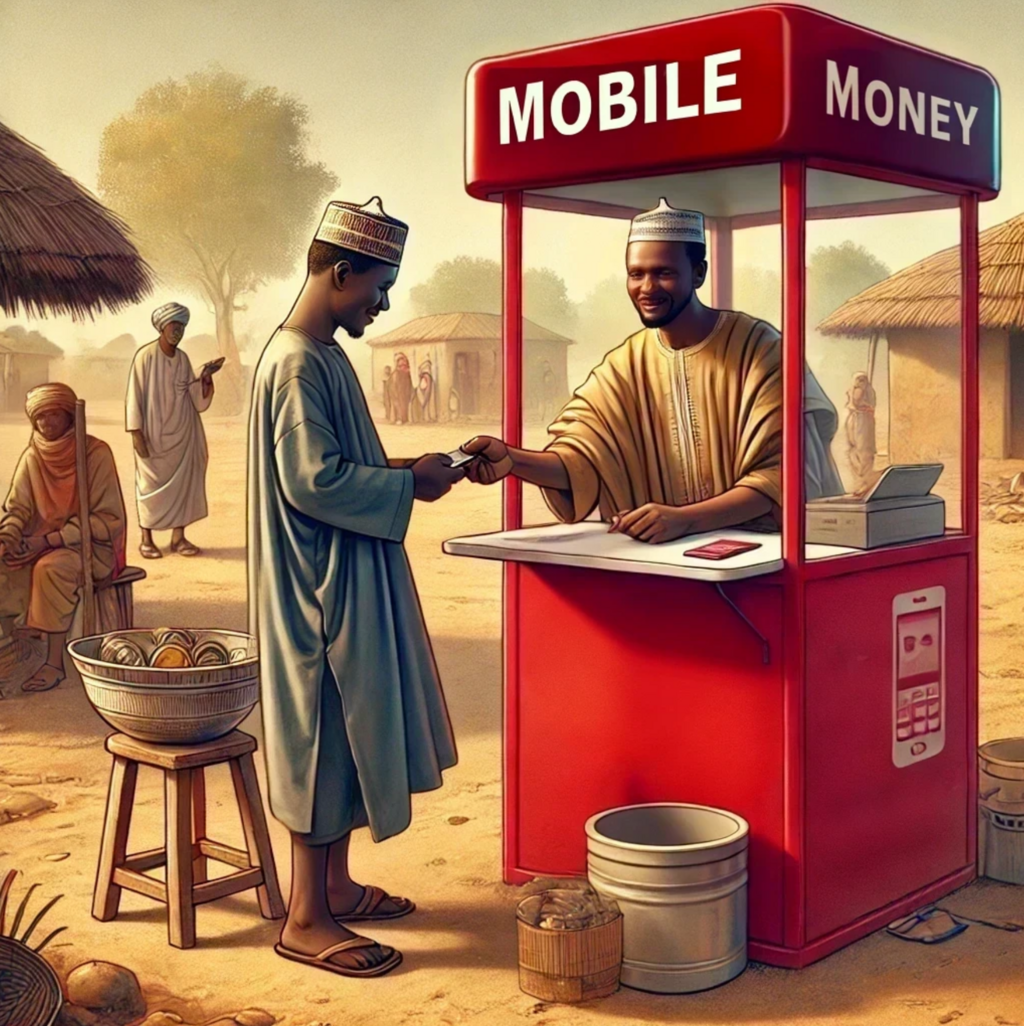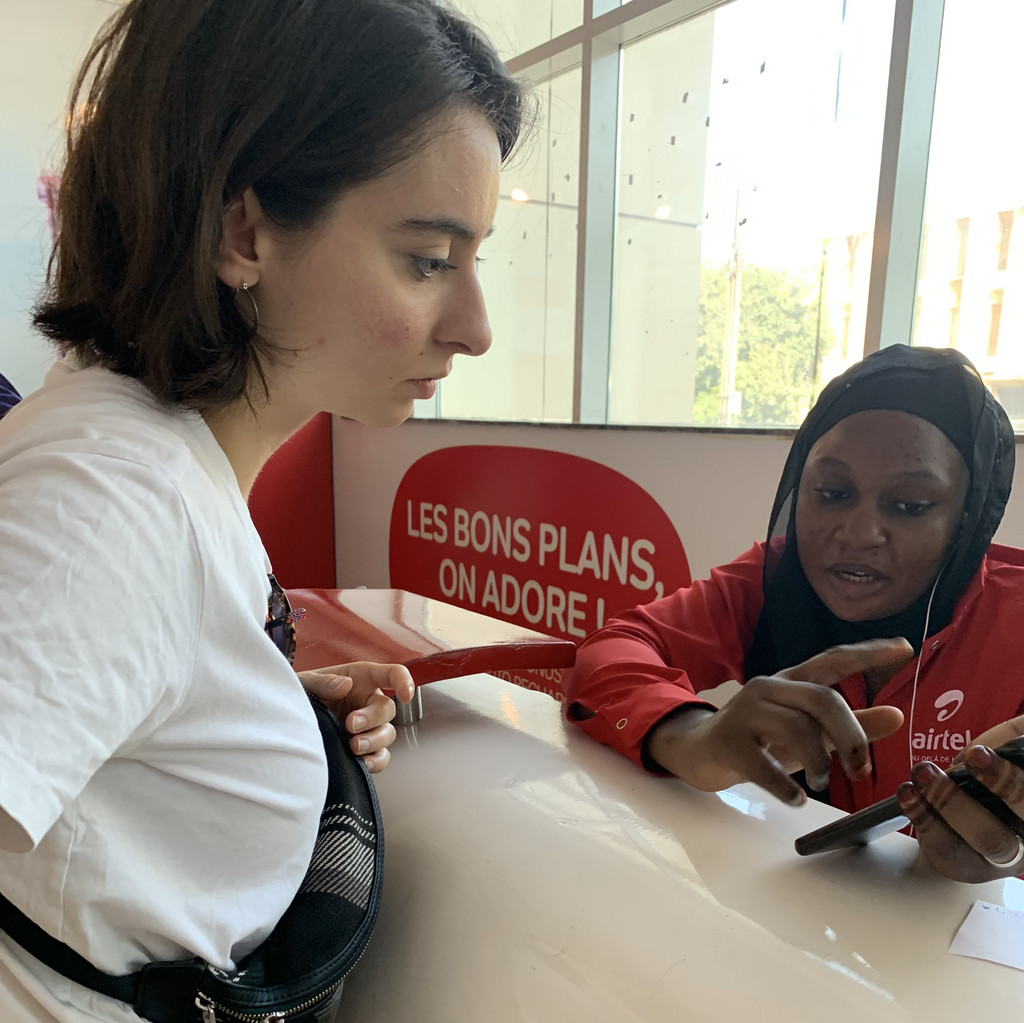
Financial inclusion remains a pressing challenge in the Global South. In Niger, where traditional banking infrastructure is scarce, mobile money platforms offer a possibility to advance financial inclusion. Our team from the University of Passau has joined forces with our Mercator Fellow Prof. Jenny Aker (Cornell University) and Josué Awonon (Tufts University) to explore the impact of mobile money adoption in rural communities, aiming to assess how digital financial services can improve household welfare and resilience.
Mobile money allows users to deposit and withdraw cash, transfer funds, and save money using simple phones—without needing a traditional bank account. Transactions are executed instantly, even on basic mobile phones, making it a practical solution in areas with limited banking services. Cash-in and cash-out transactions are executed by mobile money agents, who serve like human ATMs. Mobile money platforms have the potential to reduce transaction costs, increase transfer security, and provide reliable access to financial resources, particularly for households reliant on remittances and informal financial networks.
While other countries, especially in East Africa, have experienced significant growth in mobile money usage, Niger remains far behind. Key barriers include a lack of information, low digital and financial literacy, and lack of financial means.


To better understand the factors influencing mobile money adoption and the socioeconomic impact of adopting mobile money, we are carrying out a randomized controlled trial (RCT). The lack of adoption needs to be assed from both supply and demand side of mobile money. Hence, we collect data from rural households, the demand side, as well as agents in local markets, the supply side. Our RCT will roll-out treatments for the households and the agents in a sequential manner. First, we will introduce a treatment for the households with the aim to raise adoption of mobile money. Afterwards, we will provide a treatment to the agents to improve their customer service.
In February 2024, our research team conducted a baseline survey with almost 1,000 rural households in the Dosso region of Niger. During the baseline survey, we implemented a randomized information treatment, wherein treated households received a flyer explaining how mobile money works. Data from our follow-up phone survey in September 2024 indicates that the information provision did not have significant effect on the adoption of mobile money.
Therefore, we will incentivize mobile money usage and compare two different schemes. The first treatment offers an incentive to the household, if they receive a mobile money transfer from anyone in their personal network (treatment “recipient only”). In the second treatment, the incentive amount is split up between the sender of the mobile money transfer and the household (treatment “recipient + sender”). Our goal is to assess whether a rather simple financial incentive that is only paid out to the receiving household is sufficient to encourage the adoption of mobile money for the sender and the receiving household or whether part of the incentive needs to be specifically paid to the sender to encourage the transfer. Thus, our “recipient + sender” treatment is designed to further encourage cooperation between the sender and the receiving household, while our “recipient only” treatment could be more easily implemented on a larger scale.
We hypothesize that the financial incentives will not only increase mobile money adoption but also enhance financial literacy, leading to a sustained demand for digital financial services. By facilitating secure and cost-effective transactions, mobile money could increase remittances, encourage seasonal migration, and improve households’ risk coping.

Apart from the sampled households, we also surveyed 190 mobile money and airtime agents operating in 36 markets that are associated with our sample villages. Airtime agents provide related services to phone users and are a fitting target group as they may take up the mobile money business in the future. Our agent surveys provide valuable insights on the role of agent networks in mobile money accessibility and identify strategies to strengthen financial inclusion. We plan to provide a treatment to agents this year as well. This treatment may entail a general business training and a training on mobile money services. Our objective is to improve the customer service, business operations, and profits of agents. Improved customer service may have an additional positive effect on the number of mobile money users.
Our team will conduct two follow-up surveys with the households and agents to assess the impact of our demand-side and supply-side treatments. By analyzing data on remittance flows, household welfare indicators, and agent businesses, we aim to provide valuable insights into how mobile money can drive financial inclusion and resilience in Niger.